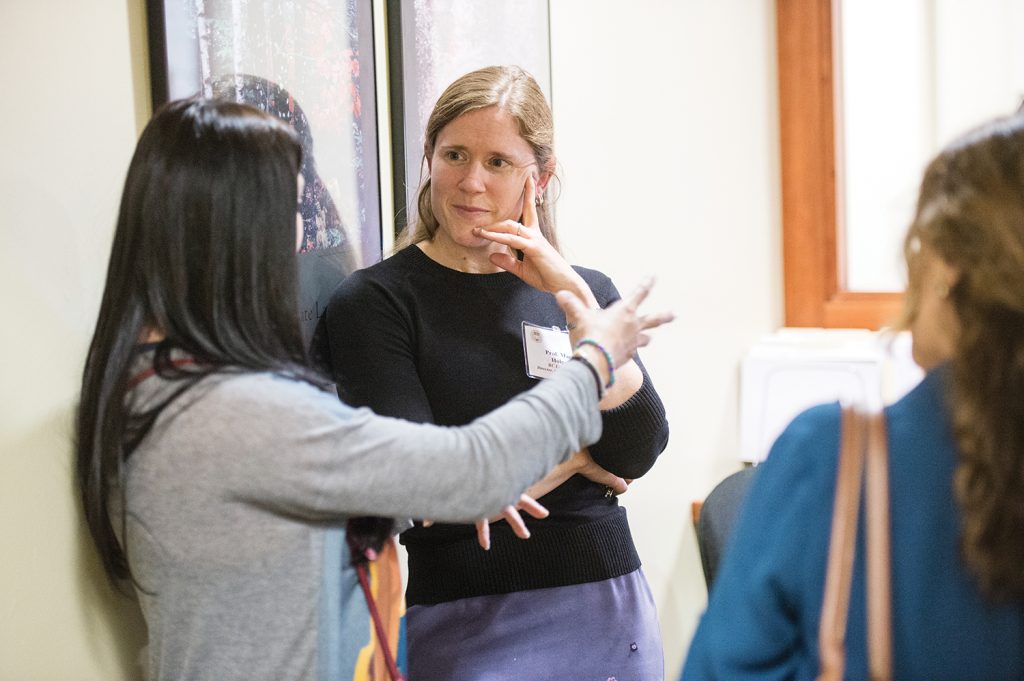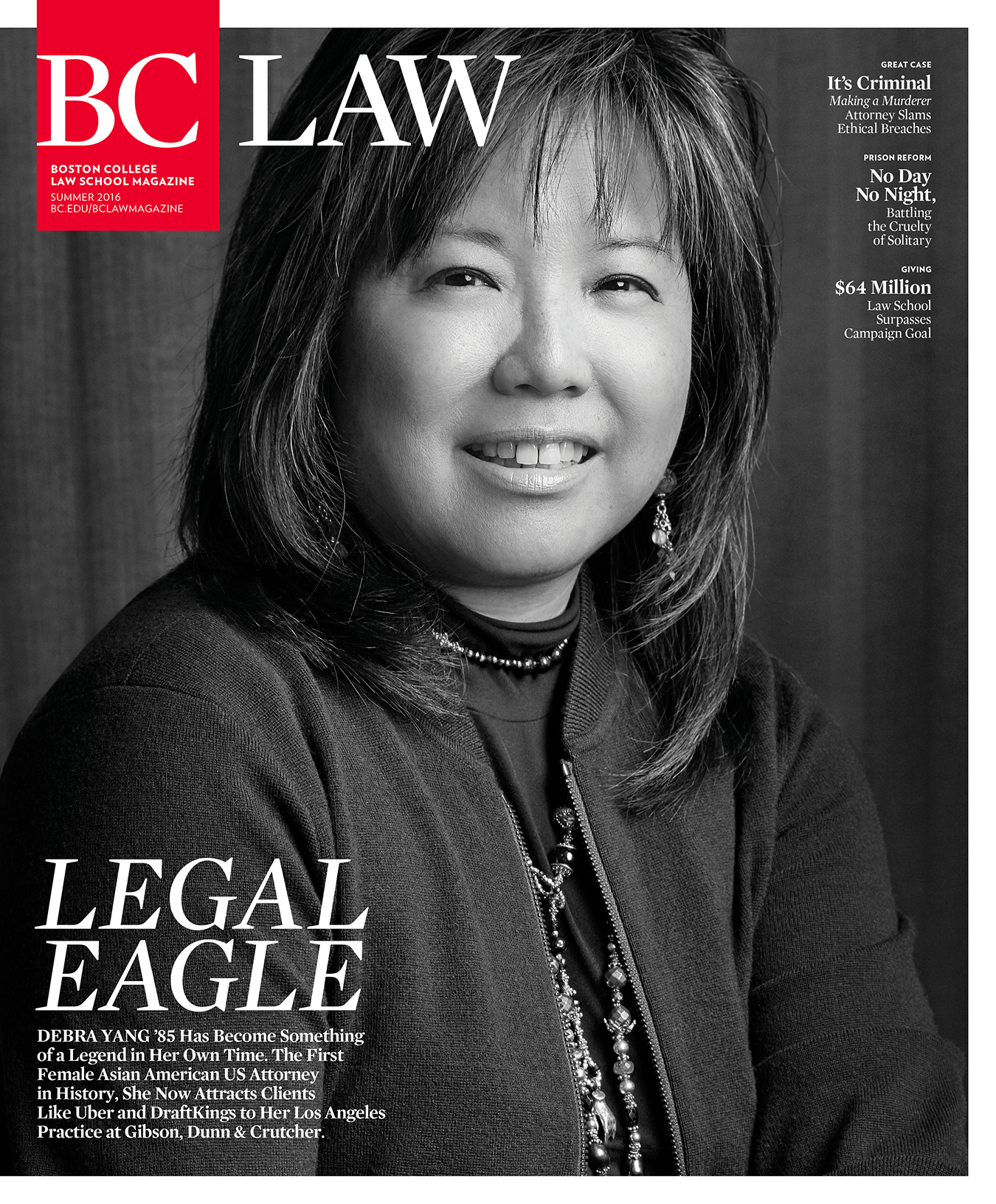Heather Perez ’17 knew exactly what she wanted in a law school. She applied only to those with strong immigration law programs. Much to her satisfaction, BC Law’s reputation for success in this practice area, she says, “turned out to be true.”
Offended by the way immigrants are treated in this country, Perez enrolled in the Immigration Clinic her 2L year. The training enabled her to argue at her client’s deportation hearing—and win. The experience was the result of a team effort. Perez worked with two classmates in the Immigration Clinic as well as a student in the Juvenile Rights Advocacy Project (JRAP) to secure the fair hearing of a young man in Texas who was scared to go back to his country.
The victory was just one in a string of successes BC’s immigration law program saw this year, including several reasonable outcomes at bond hearings. The Immigration Clinic is one of eight clinics housed in the Center for Experiential Learning, which gathered all of BC Law’s clinical programs under one roof in the fall of 2014 to foster a law firm environment.
“Now, each of the clinics has access to the resources of the firm,” said Brian Quinn, associate dean of experiential learning. Included among those resources is the chance for, as he puts it, “valuable spontaneous interactions” among students within different practice areas.
Professor Mary Holper, who runs the Immigration Clinic, has made deliberate efforts to spark these interactions for her students. In addition to encouraging the cross-collaboration between JRAP and the Immigration Clinic, she invited a BC School of Social Work student to complete a yearlong field placement with the clinic.
That student strengthened the law students’ experience and success by providing “an extra set of hands, eyes and ears, and the perspective of someone not trained in the law,” said Holper. “Having a social work student helps law students approach very difficult subject matters during client interviews, broach the topic of traumatic experience, and assist in effective investigation and fact development.”
The number of students enrolled in the clinical programs speaks to their growing interest in centralized, hands-on legal work. The Immigration Clinic this year took in ten law students, an increase from previous years, and welcomed alumna Beth Zilberman ’13 as a clinic fellow.
Photo: Professor Mary Holper encourages collaboration in her Immigration Clinic.



